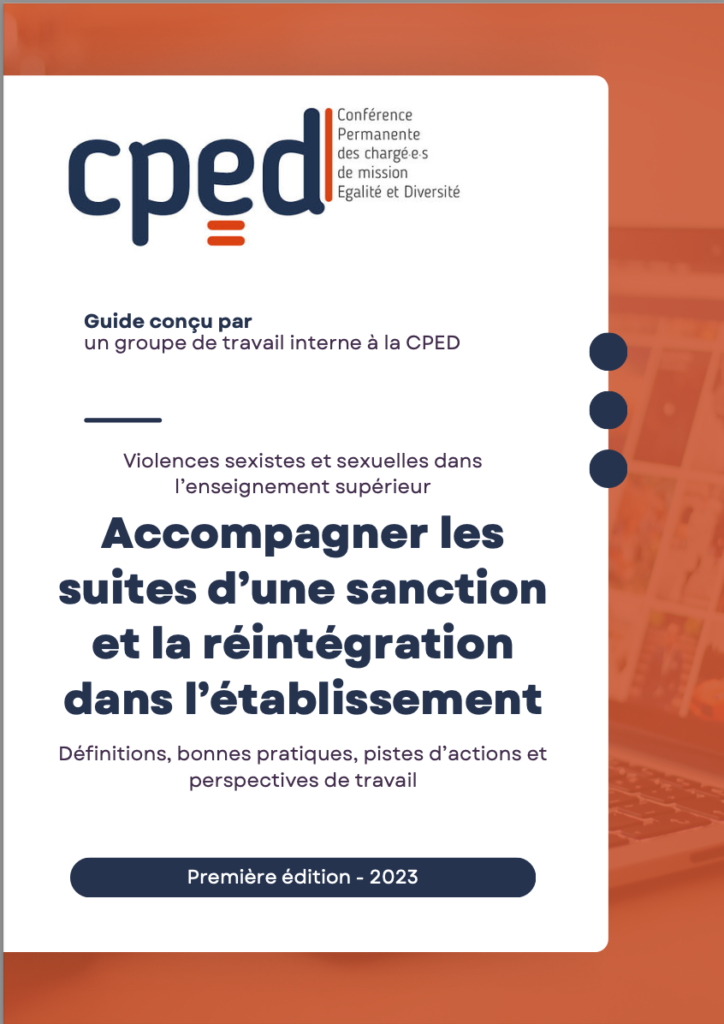The CPED working group presents the results of its work: a guide to dealing with the aftermath of a sanction and reintegration into the establishment for cases of gender-based and sexual violence in higher education.

Today, 5 years after the March 9, 2018 circular on the fight against sexual and gender-based violence in the civil service, we note that the majority of ESR establishments have set up mechanisms and a plan to prevent SGBV. They deal with situations effectively, and in the most difficult cases, punish the perpetrator(s). In this context, CPED has stepped up its actions through training, communication, support for establishments and participation in national and international forums.
Today, more and more establishments are questioning the need for reinforced, long-term support for VSS situations, particularly when those sanctioned are required to return to work. Even if the parties involved (complainants, respondents, witnesses, colleagues, etc.) in each situation are referred to health professionals and specialized associations, it has to be admitted that this is not enough in view of the psychological and health consequences. What's more, an effective response to violence also implies doing everything possible to prevent recidivism, by taking care of those who have been punished. Finally, in the long term, it is necessary to restore the work or study group after a situation of violence, particularly when the person sanctioned, whether student or staff, resumes his or her activity in the establishment.
The CPED meetings, organized by the University of Orléans in June 2022, led to the collective observation of difficulties linked to the accompaniment of victims and people sanctioned in our establishments for acts of VSS. Some establishments are already confronted with this issue, while others will soon be. This led to a proposal to set up a working group to address the issue of support for victims, those sanctioned, workgroups and equality officers following a sanction for acts of violence against women.
This working group was set up in October 2022 and met once a month until June 2023. It is made up mainly of equality officers. This deliverable is intended to help establishments address the following concerns: How can we ensure that the parties involved are dealt with early and swiftly? How can recidivism be prevented? How can we support and restore the work or study group?
Our first instinct was to draw on existing best practices throughout the company. Even though the hearings conducted within the framework of this WG (described in the appendix) were very enriching, it appears that the specific features of our ecosystem mean that what already exists cannot be transposed as it stands to our establishments, and would require far-reaching adaptations. This is why this deliverable consists of an initial section of observations and definitions, before proposing courses of action and support for situations already in place in certain establishments. This WG opens up prospects for joint work between establishments, but also with players in research, the voluntary sector, the legal system and public services.
We would like to sincerely thank the participants in this working group for their expertise, their diligence, their desire to share and their commitment to these issues within CPED and their respective establishments. Once again, we have seen the power of co-construction, and the power of the collective when faced with an issue.
We hope this deliverable will help you save time and, above all, improve the operation of your devices, and we look forward to seeing you in a future workgroup.
